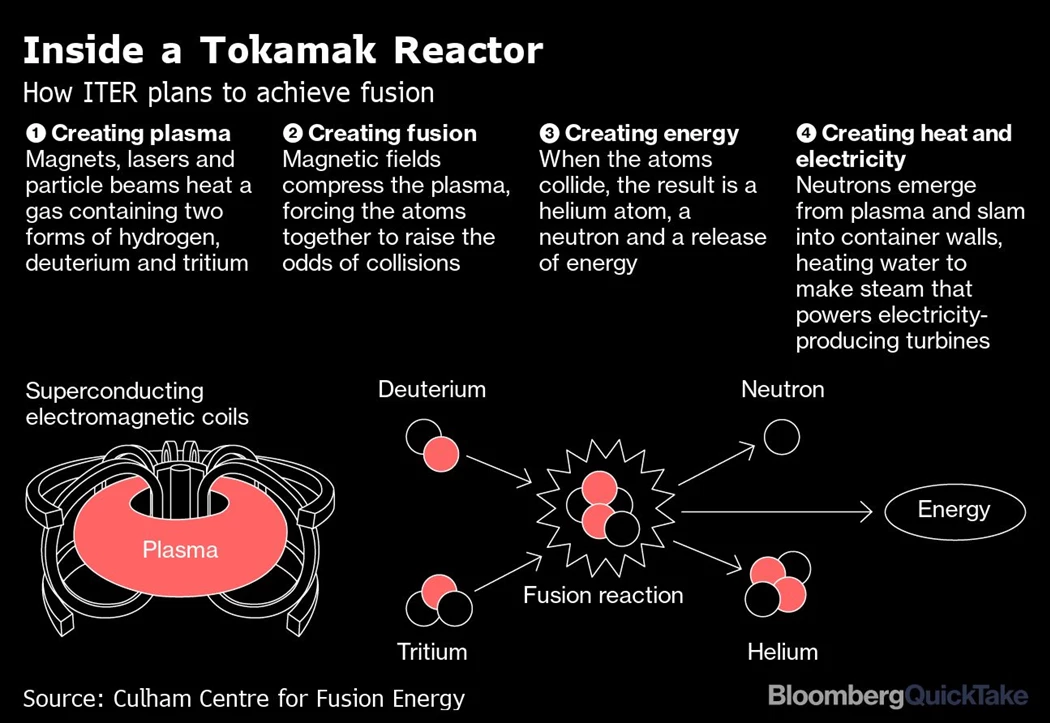Biggest Fusion Energy Reactor Faces More Delays, Higher Costs
(Bloomberg) -- The world’s biggest fusion experiment involving 35 nations faces new delays and potentially billions of dollars in extra costs after defective pieces and broken supply chains disrupted the reactor’s construction in southern France.
The International Thermonuclear Experimental Reactor, or ITER, needs to come up with an updated pathway toward achieving fusion by 2024, the project’s supervisors said Thursday, giving management more time to sort things out after originally ordering an updated baseline this year.
The $22 billion project has been plagued by problems the past two years. Just as it started sorting out logistics disrupted by the Covid-19 pandemic, Moscow’s invasion of Ukraine complicated the supply of critical components manufactured in Russia.
In May 2022, the project’s long-time chief, Bernard Bigot, died. The first task of his replacement, Italian engineer Pietro Barabaschi, was to investigate reasons why the reactor won’t start up in 2025.

ITER’s supervisory council ordered management and outside experts “to propose an optimized, reliable cost and schedule baseline,” according to a statement. Concerns about worker safety and the discovery of defective components have forced engineers to redesign elements on the fly at the massive project 75 kilometers (47 miles) north of Marseille.
The delay means ITER will slip behind privately funded companies such as Commonwealth Fusion Systems LLC, which uses a smaller version of the tokamak reactor and expects to begin testing by 2025. Fusion is the process that fuels the sun and theoretically could generate limitless clean energy.
ITER managers already warned in November the delay will be significant.
©2023 Bloomberg L.P.





